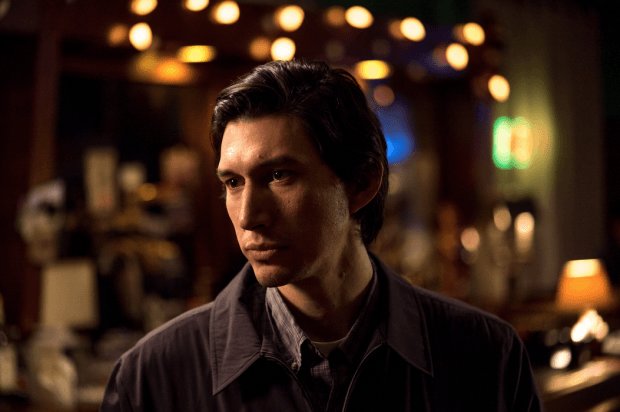
- Film
Seen in Cannes: Paterson, Jim Jarmusch’s Ode to the Poetry of Everyday Life
With Paterson, Jim Jarmusch, the quintessentially indie director–one of the few left in the U.S.–has made one of his best films in a decade, highly acclaimed by most critics who saw this idiosyncratic feature in its first press screening. Amazon Studios, the new kid on the block, which has five films in Cannes Festival this year, will release this stylistically minimalist but subtextually rich work later in the year, first theatrically in select markets, then on VOD (this was Jarmusch's condition),
I have to make a full frontal disclosure: I have had vested interest in the evolution of Jarmusch as an auteur ever since I saw Stranger Than Paradise, his 1984 bravura debut, which won the Camera d'Or at Cannes, a prize given to the best first film. Since then, Jarmusch has gone up and down, with such diverse body of works that includes the 1995 Dead Man, a revisionist black-and-white Western, starring Johnny Depp and Robert Mitchum (yes, Mitchum, the Hollywood star).
And now comes Paterson, yet another eccentric ode to unsung ordinary lives (in this case lived in Paterson, New Jersey) and to poetry as a valued goal that not only makes the most mundane life more interesting, but also worth living for. It is a quiet, moody, understated existential meditation of how ordinary residents need social order in their personal and domestic existence.
Unlike other Jarmusch's features, aterson boasts a strong performance from an established actor, Adam Driver, whose ascent to commercial stardom (he just appeared in the blockbuster Star Wars: The Force Awakens) may elevate the visibility of what is undeniably a demanding film (pacing is very slow), and make it more accessible to a younger generation of viewers. Jarmusch has not seen any Star Wars movie and cast Driver based on his small indies, Frances Ha by Noah Baumbach and the Coen brothers' Inside Llewyn Davis,
It should be pointed out that Driver is not cast in a flashy role, but as an unassuming bus driver, whose daily routines Jarmusch follows with great attention to minute detail over the course of one "typical" week. Trust Jarmusch that it is not a coincidence that the story is set in a mundane setting (how many people have heard of Paterson, N.J.?) and in the fall, two factors that lend the anti-climactic saga both authenticity and a melancholy tone. Also reflecting Jarmusch's unique, inimitable vision is the fact that Driver's character is called Paterson, and that he is happily married to an unassuming wife, Laura, well played by Golshifteh Farahani, who doesn't look or behave like an actress.
So what's the essence of Paterson's typical day? He gets up every morning at 6:12 a.m. (without relying on the alarm clock), walks to work (though most people drive in such towns), drives a city bus, and usually stops only once a day for a modest lunch. For recreation, Paterson frequents a local bar, for one beer only, while lovingly walking his dog, named Martin.
Dog lovers would admire this picture–if they get to see it–for the dog is not only treated with love and respect by his owner, but also by the director, who grants him as many reaction shots and close ups as he does to his human characters!
At first, wife Laura seems too domestic, too cheerful in living a humdrum life, but then we observe her making colorful cupcakes, and discussing (and practicing) her ambition to become a singer, of country music no less, though she is perfectly happy just waiting for her husband to come home for dinner.
But wait, earlier I described Paterson as an homage to the merits of poetry as a life-saving an life-enhancing experience. Indeed, we observe Paterson the man as he pulls pieces of paper and takes notes that are inspired by his routines. Later on, he gives them finer shape and form as he rehearses them in his mind. Jarmusch, knowing that the act of writing is not a particularly dramatic or cinematic experience, avoids clichés, instead relying on the direct and unpretentious impact of the lyrics, written specifically for the film by contemporary poet Ron Padgett, who also gave the director permission to use his pre-existing poems.
Though plotless, the movie includes several semi-dramatic encounters that help define Paterson as an heroic figure utterly committed to poetry. In one of his interactions, he meets a young girl who reads to him her poem. But my favorite scene is set outdoors, in a park, where Paterson meets a Japanese tourist (played by Masatoshi Nagase), who introduces himself as a scholar and a poet. It's worth noting that, despite Paterson's need to write poetry, he doesn't perceive himself as a professional author, nor does he expect to get published, or get paid for his writings.
Though lasting only several minutes, the aforementioned meetings illuminate the film's central idea, making it more universal. No matter how unassuming or modest or even shabby our lives might seem, they always contain some unanticipated pleasures and consequences. And minor as they might be (or seem to be to an outsider), they still vastly enrich our existence. It's as if Jarmusch were saying, no matter where you live, or who you are, just look round more carefully, be more attentive to your surroundings, and you'll find plenty of inspirations for poetry.
On a deeper, existential level, Paterson suggests the needs that most individuals possess to impose some order, some structure, on seemingly disorganized and randomly lived lives. To that extent, Jarmusch achieves an impressive level of humanism in saying that, ultimately, each and every person is a potential poet and worthy narrator of his or her life.

